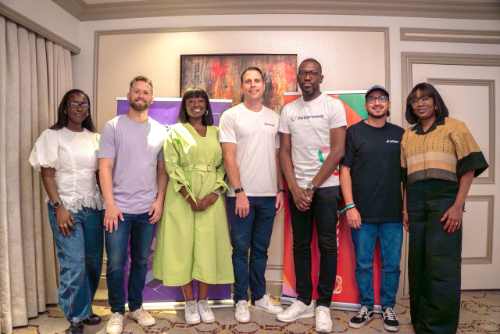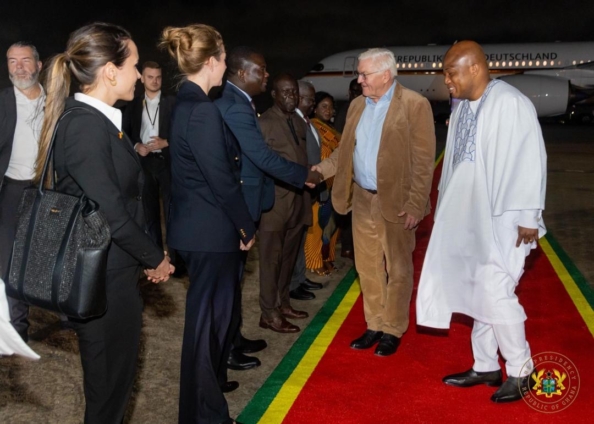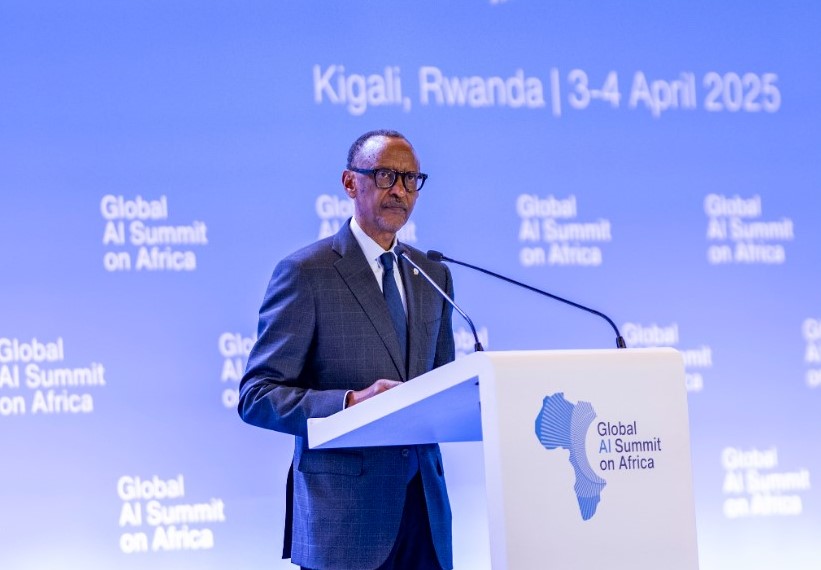AI Crossroads: Nigeria's Bold Move Towards a Culturally Aligned AI Future

Nigeria's new National Artificial Intelligence Strategy (NAIS) has been recognized as an ambitious and visionary initiative, albeit one that is overdue. While over 44 countries have unveiled national AI strategies since October 2024 to keep pace with global modernization, Nigeria stands out as one of the few African nations to successfully articulate such a plan. This effort is inspiring, showcasing a developing African country claiming its stake in the global AI conversation, not merely as consumers but as creators, regulators, and engineers of innovation.
However, the strategy raises critical questions about how to build AI systems that genuinely reflect Nigeria's unique identity and context, rather than simply following global trends. This urgency is underscored by a justifiable comparison with the UK's AI strategy, which offers a mature roadmap built on immersive tech leadership, layered AI regulation, and global partnerships. This comparison is relevant due to shared cultural bridges, economic partnerships, and diasporic links, and because developing countries like Nigeria are making significant strides in digital technology, often emulating advanced nations.
Nigeria's draft NAIS, published in August 2024, reflects a bold attempt to move from the periphery to the forefront of global digital leadership. Its vision is to be "a global leader in harnessing the transformative power of AI through responsible, ethical, and inclusive innovation, fostering sustainable development through collaborative efforts," aiming to achieve this through "better and more inclusive strategies." Bosun Tijani, Nigeria's Minister for Communications, Innovation and Digital Economy, emphasized AI's role in boosting productivity across diverse sectors like agriculture, public health, and education, aligning with Nigeria's economic diversification goals. For many, this strategy represents an opportunity to build a future rooted in local context, which is seen as Nigeria's greatest opportunity.
While Nigeria lays the groundwork for AI infrastructure, skills development, and cross-sector adoption, the focus should extend beyond merely catching up to global standards. Instead, there's an imperative to define an indigenous AI ecosystem that authentically reflects Nigerian economic aspirations, languages, informal markets, stories, and social complexities, an idea crucial for African development, as philosopher Y.V. Mudimbe articulated regarding the complexity of self-definition in technological renaissance.
Drawing lessons from the UK, which maintains a consciously layered, pro-innovation approach to AI governance, is beneficial. The UK empowers individual sectors like healthcare, finance, and education to craft their regulatory frameworks, prioritizing flexibility, ethical foresight, and strategic investment over immediate sweeping legal frameworks. This sector-by-sector model, noted by the Minderoo Center for Technology and Democracy, fosters growth, experimentation, and contextual relevance. As development historian Aderemi Ojo suggests, developmental ideas can be borrowed and then indigenized to suit recipient cultures. This approach suggests Nigeria could benefit from empowering existing industry regulators—such as the National Broadcasting Commission, Central Bank of Nigeria, and Film and Video Censors Board—to collaborate with technologists and community stakeholders in defining use-case-specific AI guidelines, thus protecting sector-specific values while encouraging aligned innovation.
Another significant lesson from the UK is its recognition of immersive technologies like XR, VR, and volumetric storytelling as essential infrastructure, not just entertainment. Through programs like Audience of the Future and StoryFutures Academy, the UK has strategically invested in immersive labs, creative clusters, and public-private research partnerships that bridge culture and technology. Experience design is increasingly vital for education, cultural preservation, and climate action. Nigeria, with its prolific film industry (Nollywood) and rich oral storytelling traditions, should not lag in immersive innovation. Nollywood, for instance, could serve as a powerful catalyst for immersive archives, synthetic oral histories, and extended-reality educational tools, requiring investment and cross-sector vision.
The ethical dimension of AI development is paramount and cannot be simply copied from Western contexts for Nigeria. It must reflect the nation's religious diversity, political sensitivity, history of misinformation, and cultural values concerning privacy, identity, and respect. This necessitates advisory councils composed not only of data scientists and policy experts but also traditional leaders, religious scholars, linguists, and artists who understand the intricate nuances of building for a non-monolithic society. Ethical models must be fluent in Yoruba, Hausa, and Igbo, capable of discerning between a meme and a misinformation campaign, and recognizing cultural taboos related to voice cloning.
Furthermore, an ethical and equitable AI future in Nigeria is inconceivable without local languages at its core. If AI cannot comprehend Yoruba, Igbo, Hausa, or Pidgin, it will inevitably exclude millions, leading to misinterpretation, misrepresentation, and ultimate failure. A national commitment is urgently needed to build and support Natural Language Processing (NLP) tools in indigenous tongues. This will empower voice assistants for farmers, conversational bots for informal traders, and educational tools for public school students, recognizing language as the fundamental infrastructure of intelligence. Pete-Cole Onele, a tech adoption policy expert, emphasizes the urgency of digital recognition for Pidgin English, Nigeria’s most widely used commercial language, crucial for the thriving informal sector.
Human capacity building is another critical development perspective. The UK has excelled in creating accessible pipelines into AI and immersive tech careers through bootcamps, apprenticeships, and fellowship programs that engage technologists, artists, musicians, educators, and designers. Nigeria's 3 Million Technical Talent (3MTT) program is a commendable start, but it needs expansion to include creative AI, generative storytelling, synthetic media, and ethical design. Training hybrid minds who can code, analyze, and imagine is crucial, given that Nigeria's economy and identity are predominantly informal, polyphonic, and deeply human.
With over 60 percent of Nigeria's GDP flowing through informal systems—involving traders, artisans, transport workers, and freelancers—AI systems must be designed with these individuals in mind, not just elite companies or export-ready startups. Imagine AI assisting a market woman in forecasting best-selling days, or public transport operators optimizing routes using voice-powered AI in Pidgin. The Mile 12 market in Lagos could be treated as a viable medium for tech adoption, rather than awaiting formalization. Beyond disruption, AI should also serve to preserve. Nigeria's culture, stories, and rituals represent invaluable datasets. AI can be leveraged to archive oral histories, reimagine folklore, and protect endangered knowledge systems, provided there is adequate funding, intellectual property protection, and community consent.
In conclusion, Nigeria's draft AI strategy is a strong starting point, but its success hinges on its ability to speak local languages, mirror the nation's complexity, and prioritize its people. It must evolve into a cultural blueprint that recognizes creatives not merely as end-users but as co-architects, informal workers as innovators, and treats ethics as an ongoing dialogue rather than mere compliance. Nigeria now has a rare opportunity to define not just artificial intelligence, but a strategic, ethical, rich, and deeply imaginative African intelligence, which, if done well, will almost certainly shape the future.
You may also like...
Wolves Coaching Chaos: Pereira Fired, High-Stakes Search for Replacement Begins!

Wolverhampton Wanderers have sacked manager Vitor Pereira after a dismal start to the Premier League season, leaving the...
Netflix's Next Sensation: Forgotten HBO Series with 97% RT Score Set to Explode!

The critically acclaimed series Minx is making its highly anticipated move to Netflix on November 4, marking its third s...
Hollywood Crisis: October Box Office Hits Devastating 30-Year Low!

October proved to be a historically challenging month for the box office, recording its worst collective haul since 1997...
Cardi B's Sideline Surprise: Rapper Cheers On Boyfriend Stefon Diggs at Patriots-Falcons Game

Cardi B made a high-profile appearance at Gillette Stadium, cheering on the New England Patriots while seated next to Ro...
Taylor Swift Reigns Supreme: 'The Life of a Showgirl' Dominates Billboard 200 for a Month

Taylor Swift's "The Life of a Showgirl" secures its fourth week at No. 1 on the Billboard 200, extending her record amon...
Fintech Powerhouse Flutterwave Unites with Polygon to Ignite Stablecoin Payment Revolution

Flutterwave has partnered with Polygon Labs to launch a stablecoin-powered cross-border payment network across 34 Africa...
Cambridgeshire Train Terror: Hero Staffer Fights for Life After Tackling Attacker

A mass stabbing on an LNER train between Peterborough and Huntingdon resulted in 11 hospitalizations, with a heroic rail...
Ghana Welcomes German President for Landmark State Visit

German President Frank-Walter Steinmeier embarked on a three-day state visit to Ghana, engaging in high-level discussion...


